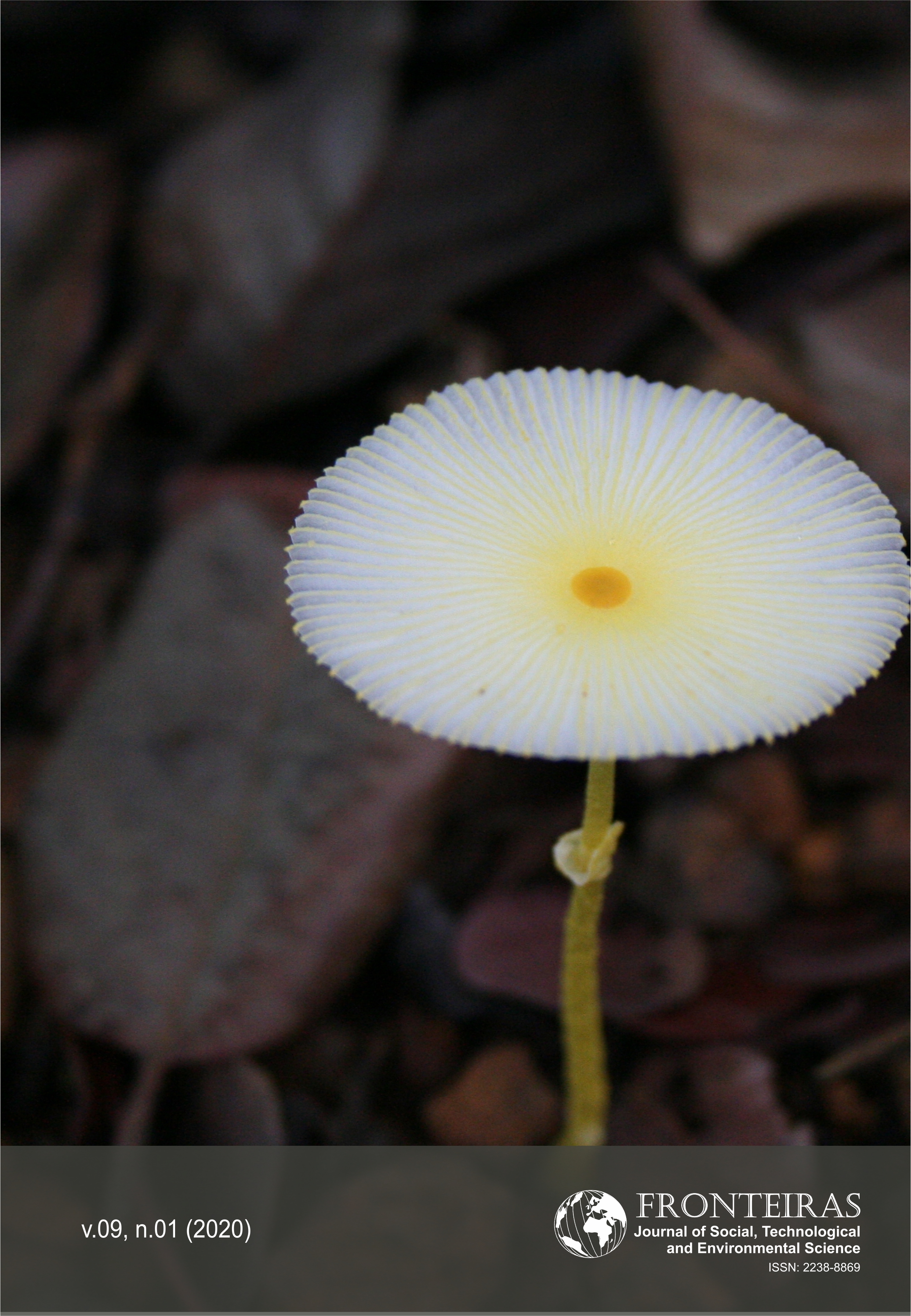Crise da Água em São Paulo na Perspectiva dos Órgãos Governamentais: Crise Hídrica ou de Informação?
DOI:
https://doi.org/10.21664/2238-8869.2020v9i1.p101-125Palavras-chave:
Direito à Informação, Notícia, Organizações Governamentais, Crise Hídrica, Pesquisa DocumentalResumo
A internet possibilita às organizações sociais o papel de protagonistas na consecução do direito à informação, de modo a estimular a participação cidadã no debate público sobre as mais diversas questões, dentre as quais a hídrica. Este estudo analisa notícias veiculadas por duas organizações governamentais responsáveis pela gestão das águas no contexto brasileiro: uma nacional e outra do estado de São Paulo. Discute-se se suas práticas comunicativas atendem aos pressupostos legais do direito à informação no processo de agendamento e enquadramento da crise hídrica de São Paulo. O estudo é descritivo e analítico, qualitativo, de base bibliográfica e documental. A amostra é não probabilística, por tipicidade e acessibilidade. Emergiram quatro categorias de análise a partir de uma diversidade de elementos que compuseram a macrocategoria enquadramento: fontes, conflitos, responsabilidade e soluções. Concluiu-se que a organização estadual enquadra a crise como uma situação “sob controle”, enquanto a organização nacional busca explicar tecnicamente os mecanismos para o seu enfrentamento. De modo geral, e considerando-se a relevância do problema, as duas organizações publicaram pouco e informaram predominantemente a partir de interesses institucionais e não do interesse público. Por fim, verifica-se que o papel das organizações de caráter ambiental deve ser ampliado em se tratando da implementação do direito à informação ambiental.
Referências
Brandão, EP. 2012. “Conceito de Comunicação Pública.” In Comunicação Pública: Estado, Mercado, Sociedade e Interesse Público. https://www.saraiva.com.br/comunicacao-publica-estado-mercado-sociedade-e-interesse-publico-1971017/p.
Brasil. 1988. Constituição Da República Federativa Do Brasil de 1988. http://www.planalto.gov.br/ccivil_03/Constituicao/Constituicao.htm.
———. 1997. Lei No 9.433, de 8 de Janeiro de 1997. http://www.planalto.gov.br/ccivil_03/LEIS/L9433.htm.
———. 2000. Lei No 9.984, De 17 de Julho de 2000. http://www.planalto.gov.br/ccivil_03/LEIS/L9984.htm.
———. 2003. Lei No 10.650, de 16 de Abril de 2003. http://www.planalto.gov.br/ccivil_03/Leis/2003/L10.650.htm.
———. 2011. Lei No 12.527, de 18 de Novembro de 2011. http://www.planalto.gov.br/ccivil_03/_ato2011-2014/2011/lei/l12527.htm.
Bueno, Wilson Da Costa. 2007. “Jornalismo Ambiental: Explorando Além Do Conceito.” Desenvolvimento e Meio Ambiente 15 (June). https://doi.org/10.5380/dma.v15i0.11897.
Campello, Lorena de Oliveira Souza. 2012. “A Contribuição Do Jornal Gazeta de Sergipe Para a Discussão Da Problemática Ambiental Entre Os Anos de 1972 E 1992: O Papel Da Imprensa Escrita Para o Desenvolvimento Social.” Revista Electrónica En América Latina Especializada En Comunicación, no. 80: 1–17. www.razonypalabra.org.mx.
Cavalcanti, Joyce Mariella Medeiros, Larissa Mayara da Silva Damasceno, and Manoel Veras de Souza Neto. 2013. “Observância Da Lei de Acesso à Informação Pelas Autarquias Federais Do Brasil.” Perspectivas Em Ciência Da Informação 18: 112–26. http://portaldeperiodicos.eci.ufmg.br/index.php/pci/article/view/1753.
CEPAL, Comissão Econômica para a América Latina e o Caribe. 2018. “O Acordo de Escazú: Uma Conquista Ambiental Para a América Latina e o Caribe | Article | Comissão Econômica Para a América Latina e o Caribe.” 2018. https://www.cepal.org/pt-br/articulos/2018-o-acordo-escazu-conquista-ambiental-america-latina-o-caribe.
Diz, Jamile Bergamaschine Mata, and Ana Clara Gonçalves Discacciati. 2015. “Acesso à Informação Ambiental: Por Um Novo Paradigma de Participação.” Revista Direito e Liberdade 17 (2): 71–113. http://ww2.esmarn.tjrn.jus.br/revistas/index.php/revista_direito_e_liberdade/article/view/956/667.
Dowbor, Ladislau. 2004. “Informação Para a Cidadania e o Desenvolvimento Sustentável.” Ladislau Dowbor, 16. https://dowbor.org/2004/10/informacao-para-a-cidadania-e-o-desenvolvimento-sustentavel-2.html/.
Geraldes, Elen, and Lígia Maria Reis. 2012. “Da Cultura Da Opacidade à Cultura Da Transparência: Apontamentos Sobre a Lei Do Acesso à Informação Pública.” In XXXV Congresso Brasileiro de Ciências Da Comunicação, 1–10.
Koçouski, Marina. 2013. “Comunicação Pública: Construindo Um Conceito.” In Comunicação Pública: Interlocuções, Interlocutores e Perspectivas, 41. http://www3.eca.usp.br/biblioteca/publicacoes/e-book/comunica-o-p-blica-interlocu-es-interlocutores-e-perspectivas.
Lanchotti, Andressa de Oliveira, and Jamile Bergamaschine Mata Diz. 2016. “Direito de Acesso à Informação Ambiental: Da Formalidade à Efetividade Dos Direitos de Acesso.” Revista de Direito e Sustentabilidade 2 (2): 130–48. https://indexlaw.org/index.php/revistards/article/view/1256/1688.
Matos e Nobre, Heloiza Helena, and Jorge Pereira Filho. 2016. “A Participação Na Comunicação Pública: Para Além Do Consenso.” Revista Observatório 2 (5): 383. https://doi.org/10.20873/uft.2447-4266.2016v2n5p383.
McCombs, Maxwell. 2009. A Teoria Da Agenda: A Mídia e a Opinião Pública. http://periodico.abavaresco.com.br/index.php/opiniaofilosofica/article/view/489.
Monteiro, Graça França. 2009. “A Singularidade Da Comunicação Pública.” In Comunicação Pública: Mercado, Sociedade, e Interesse Público, 34–46.
Moraes, R. 2007. “Mergulhos Discursivos: Análise Textual Qualitativa Entendida Como Processo Integrado de Aprender, Comunicar e Influir Em Discursos.” In Metodologias Emergentes de Pesquisa Em Educação Ambiental.
ONU, Organização das Nações Unidas. 1972. “Declaração de Estocolmo Sobre o Ambiente Humano - 1972.” 1972. http://www.direitoshumanos.usp.br/index.php/Meio-Ambiente/declaracao-de-estocolmo-sobre-o-ambiente-humano.html.
———. 1992. Declaração Do Rio Sobre Meio Ambiente e Desenvolvimento.
SABESP, Companhia de Saneamento Básico do Estado de São Paulo. 2015. “SABESP - Institucional.” 2015. http://site.sabesp.com.br/site/interna/Default.aspx?secaoId=505.
UNECE, Comissão Económica das Nações Unidas para a Europa. 1998. Convenção de Århus.
Veron, Eliseo. 2004. Fragmentos de Um Tecido. Usininos.
Wolton, Dominique. 2010. Informar Não é Comunicar. Revista Temática.
Downloads
Publicado
Como Citar
Edição
Seção
Licença
Esta revista oferece acesso livre imediato ao seu conteúdo, seguindo o princípio de que disponibilizar gratuitamente o conhecimento científico ao público proporciona maior democratização mundial do conhecimento.
A partir da publicação realizada na revista os autores possuem copyright e direitos de publicação de seus artigos sem restrições.
A Revista Fronteiras: Journal of Social, Technological and Environmental Science segue os preceitos legais da licença Creative Commons - Atribuição-NãoComercial 4.0 Internacional.


